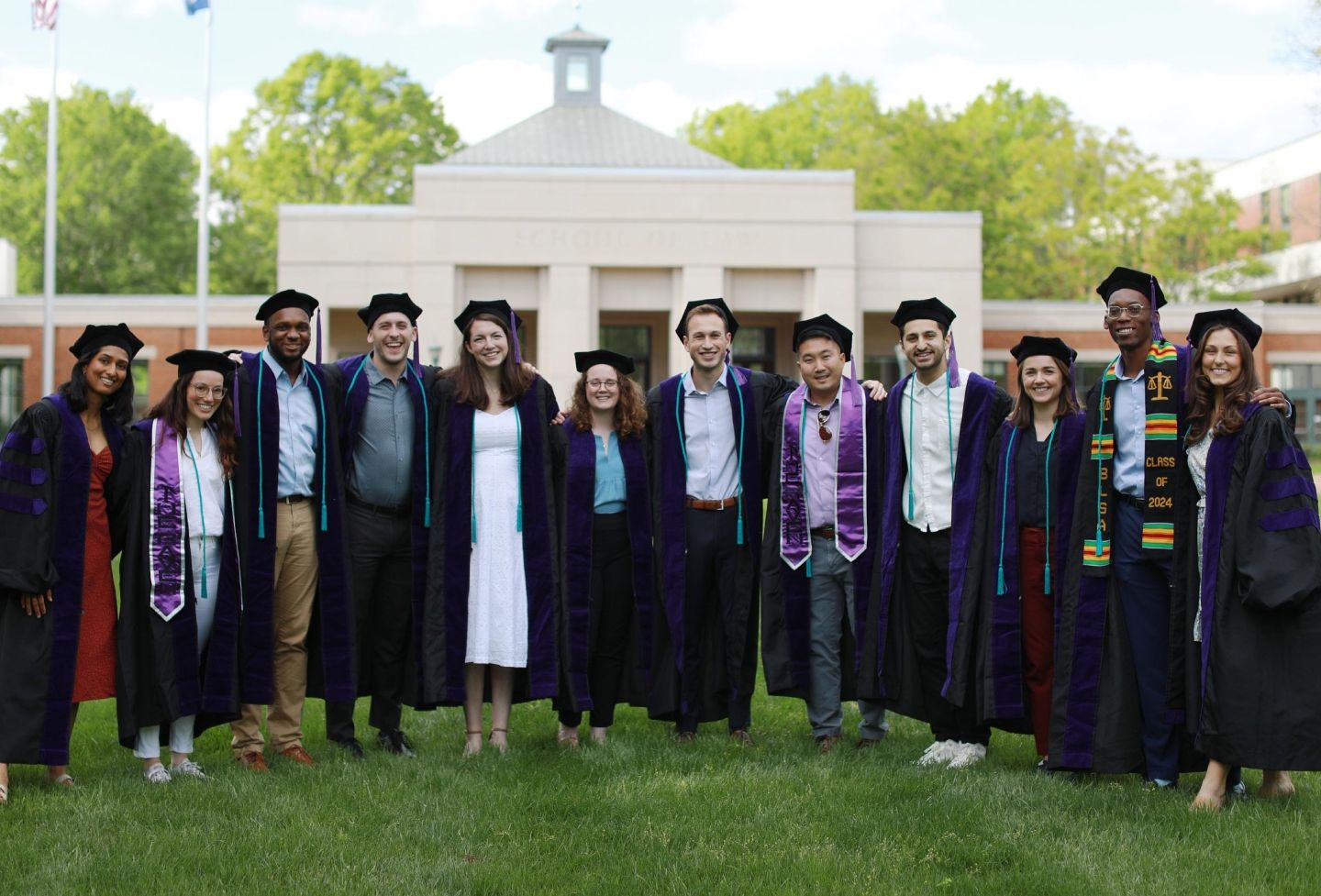Calmore Laments Death of Legal Liberalism

The progress on racial and social justice issues that the Warren Court began is now stalled, according to University of North Carolina law professor John Calmore, who spoke on "The Cultural Legacy of the Warren Court" Feb. 16 at the invitation of the American Constitution Society. Law professors Earl Dudley (a law clerk of Chief Justice Earl Warren) and Lillian BeVier also offered some comments on the Warren Court and Calmore's talk.
"The legal liberalism represented by the Warren Court is dead and won't come back again," said Calmore, who teaches critical race theory. "In every class I teach, the word 'oppression' comes up. The oppressed live in a condition that leaves them static, limited and expendable. That's not something you law students experience. The Warren Court intervened in that oppression," most importantly in its Board v. Board of Education ruling that outlawed racial segregation in public schools.
Calmore said he did not mean to imply that he personally, a successful black law professor, was among the oppressed. "I stand before you personifying the positive legacy of the Warren Court."

But most African-Americans feel ambivalent about the Warren Court, he said. "It's what [comedian] Chris Rock said: When you're an African-American you see the United States as the uncle who paid your way through college, but who molested you when you were young."
Calmore characterized the Warren Court's social advances as taking three forms. The Court succeeded in rule-shifting (finding new rights and remedies for racial injustice), in altering the conduct of the government and private institutions, and in shifting cultural attitudes towards new moral standards. The attitude changes "have been more sustainable than the court's jurisprudence," he said. "The civil rights rulings of the court have not been sustainable. They were too formal to stand up to the racism that is embedded in society and institutions."
"The genius of today is to claim that racism only exists in individuals," said Calmore. He did acknowledge that "easy-to-spot racism is somewhat a thing of the past," but went on to assert that the legacy of the Court has been thwarted by "right-wing" resistance. "Social injustices are now seen as natural misfortunes," he said.
Racism has merely camouflaged itself along "a continuum of substitutes for discrimination," he contended. "Status relationships have not been dismantled. Hierarchies are preserved." As social injustices are challenged, he said, groups break away from institutions and abandon the rhetoric of the old point of view, but the point of view is otherwise retained. "Like a virus, it mutates to a new form."
Calmore urged students to take up "third-dimension lawyering," a tactical style he called "an advocacy response." First-dimension lawyering is rights-based advocacy in which cases are brought for their test values and to produce reforms, he explained. "A reform goal is not a transformative goal. In these cases people perceive their injuries as ones that can be remedied in court. It's deeply faithful to legal liberalism and has had its best days." Second-dimension lawyering is "public action with political ramifications. Advocacy seeks to impact the public consciousness." It is less a matter of whether the case is won than if it "widens public imagination," he said.
In third-dimension lawyering the aim is to raise the consciousness of the client group. "Acts of resistance translate into opportunities. This is the kind of lawyering that needs to be done now to advance social justice."
He told students to "resist any signs of subordination according to gender, race, class or sexual orientation" and to insist that the student body include a "critical mass of people of color," especially black men. He advised black students "not to give up on white students. Most whites are not really racists, they are just confused." He said white students, besides resisting stereotypes, "must come to terms with white privilege and what it means."

In concluding comments, professors Dudley and BeVier agreed with Calmore that the courts alone cannot fix the problems in society. Issues of injustice must also be addressed politically and individually. Dudley credited Brown with giving a "jump start" to the civil rights movement, but noted that it wasn't until Congress passed civil rights legislation in 1964 and 1965 that tied to noncompliance to federal funding losses that the southern states began to act seriously against segregation. "New legal rules are not cure-alls,' said BeVier, who noted recent news stories about individual acts of compassion and trust that led to triumphs over instances of suffering and injustice.
Founded in 1819, the University of Virginia School of Law is the second-oldest continuously operating law school in the nation. Consistently ranked among the top law schools, Virginia is a world-renowned training ground for distinguished lawyers and public servants, instilling in them a commitment to leadership, integrity and community service.


